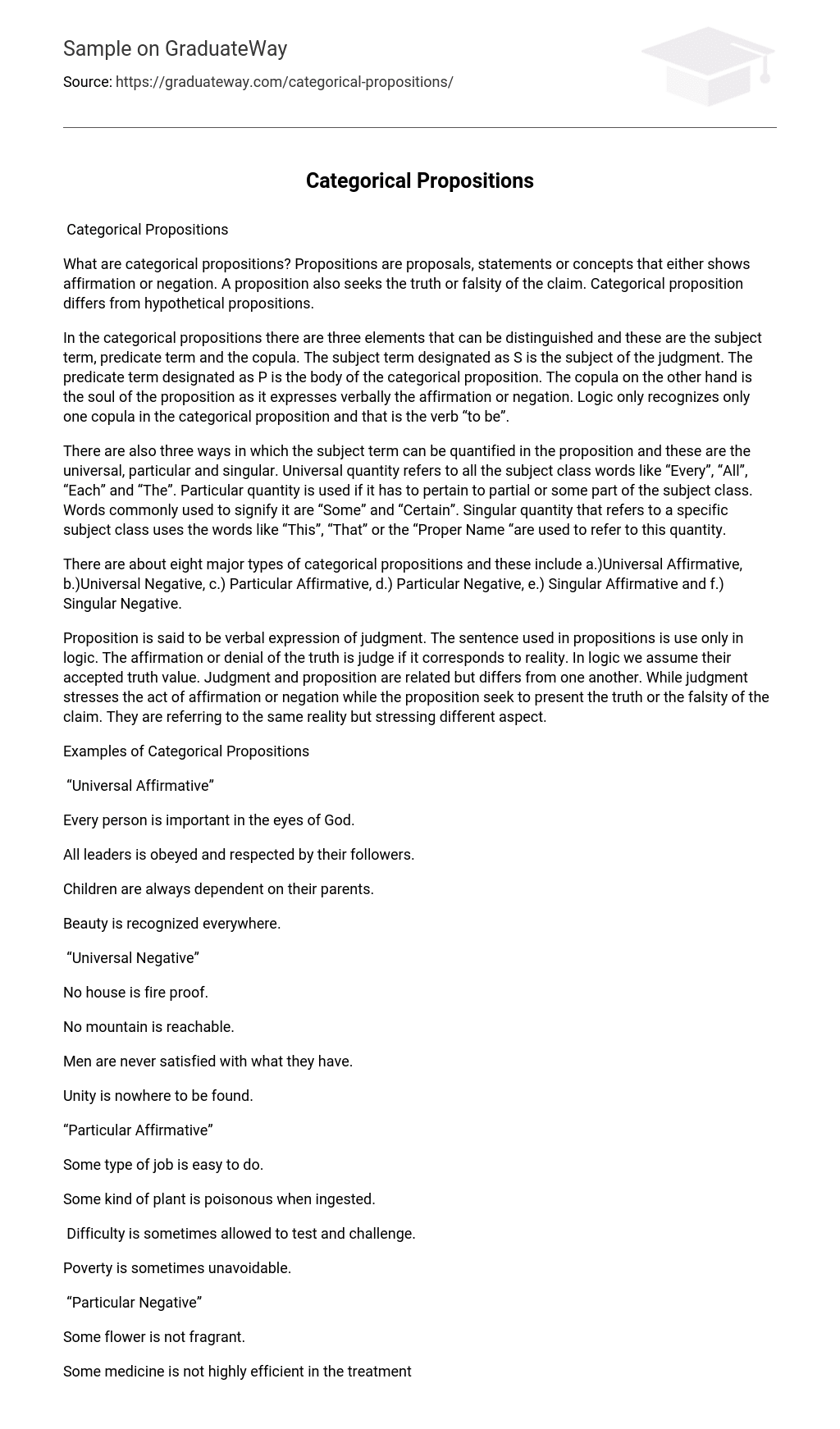Propositions are proposals, statements or concepts that either shows affirmation or negation. A proposition also seeks the truth or falsity of the claim. Categorical proposition differs from hypothetical propositions.
In the categorical propositions there are three elements that can be distinguished and these are the subject term, predicate term and the copula. The subject term designated as S is the subject of the judgment. The predicate term designated as P is the body of the categorical proposition. The copula on the other hand is the soul of the proposition as it expresses verbally the affirmation or negation. Logic only recognizes only one copula in the categorical proposition and that is the verb “to be”.
There are also three ways in which the subject term can be quantified in the proposition and these are the universal, particular and singular. Universal quantity refers to all the subject class words like “Every”, “All”, “Each” and “The”. Particular quantity is used if it has to pertain to partial or some part of the subject class. Words commonly used to signify it are “Some” and “Certain”. Singular quantity that refers to a specific subject class uses the words like “This”, “That” or the “Proper Name “are used to refer to this quantity.
There are about eight major types of categorical propositions and these include
- Universal Affirmative,
- Universal Negative,
- Particular Affirmative,
- Particular Negative,
- Singular Affirmative
- Singular Negative.
Proposition is said to be verbal expression of judgment. The sentence used in propositions is use only in logic. The affirmation or denial of the truth is judge if it corresponds to reality. In logic we assume their accepted truth value. Judgment and proposition are related but differs from one another. While judgment stresses the act of affirmation or negation while the proposition seek to present the truth or the falsity of the claim. They are referring to the same reality but stressing different aspect.
Singular propositions are generally treated and are similar as universals and therefore we shall consider them treated once we complete this category of Quantity. The indefinite propositions on the other hand that vary according to context and sometimes they are universal or particular.
Particular is separate and entirely different from the singular quantity. The eight major categories in the categorical proposition are enough to express the quantity of subject in every proposition. To avoid confusion in the sentence the particular affirmative singular and particular negative singular is no longer included in the lists.
Aside from the categorical proposition there are other types of proposition like the hypothetical propositions and modal propositions. There are also the opposition of categorical proposition like the contradictories, contraries and sub-contraries.
References
- “The Categorical Proposition” Logic: Mike’s Discussion in Logic. Retrieved June 15, 2009, from http://tamayaologic.wordpress.com/





